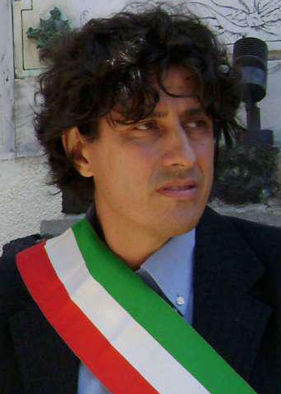November 2020, Year XII, no. 11
Massimo Castelli
The Mayor of the Trees
"Depopulation is our most urgent national emergency. When a village dies, so do traditions and age-old knowledge, typical products only found in these places and nowhere else, the landscape and rural architecture disappear, a part of our national identity vanishes."
Telos: Every time there is talk of the direct election of the Prime Minister, the evocative expression “The Mayor of Italy” is used. Is it true that today Mayors, in administering their cities, have more power than the Prime Minister?
Massimo Castelli: Mayors need to be directly elected to provide stability to city administrations, this was the reason for the 1993 electoral reform.
Under the previous proportional system, this stability was linked to agreements between the parties, which would often see shifts in alliances, majorities and the Mayor in turn over the course of the administrative term.
Mayors’ current strength stems from the fact that they are directly elected by citizens and if they topple, so does the City Council.
In order to compare the Mayor to the Prime Minister, the Prime Minister would have to be directly elected by citizens, and if the Parliament loses confidence in him, new elections would need to be held. That’s not how things are today, so you can’t compare the two.
So, the Mayor doesn’t have more power, but he definitely he has more authority, which derives from the fact that he has been directly elected by the citizens.
The breakdown in the party system has likely been the source of people’s widespread anti-political sentiment. And yet this gap between citizens and politics is not nearly as wide when it comes to the Mayor. Are your citizens still passionate about politics?
The traditional party system was based on the sound foundations of ideology and ideals: people had different ideas about society, and fierce clashes, but they respected their opponents and mutually legitimised one another.
Today, there is a tendency towards leaderism, one-man parties and to very easily switch political group. Citizens are disoriented, healthy political discussion has disappeared and been replaced by fighting, insults and constant attempts to delegitimise each other.
The first form of anti-politics comes from politics itself. When I go to a café in my hometown, nobody is passionate about politics anymore. All you hear is “They’re all the same.”
But if you’ve done a good job as Mayor, they acknowledge that, you have a coffee and find out you’re not in the “they’re all the same” category, you’re “one of us.”
It must be interesting being the Mayor of Cerignale, a small town with 122 people and a million trees. A place that symbolises the growing problem of the depopulation of towns and villages, which you have been fighting against at the institutional and programmatic level. Could you please tell us about some of the things you’ve done to save your town?
Depopulation is our most urgent national emergency. When a village dies, so do traditions and age-old knowledge, typical products only found in these places and nowhere else, the landscape and rural architecture disappear, a part of our national identity vanishes.
What we’re struggling to do in ANCI (National Association of Italian Municipalities) is to illustrate how, in this historic moment where spaces, green areas, a new way of thinking about social relations are all becoming key issues – and important economic issues as well (take the green economy, for example) – a world and all its potential is disappearing.
In order to relaunch, we urgently need “revolutionary” legislative framework that lays the groundwork for people to return.
We’re late and much of Italy risks being abandoned. In my small town, the first thing that was done was to rebuild a strong sense of community identity among my citizens.
“We aren’t losers…”, actually we’re really lucky because we have a million trees as our fellow citizens. Basically, I tried to focus on our potential.
We built a small hydroelectric plant where there was once an old mill, on most of the roofs of the municipal buildings we installed solar panels.
These interventions, along with switching to LED lights in all public lighting, have given us total energy independence, without producing a single gram of carbon.
To restore the village’s identity, we redefined and improved many public areas, we created a city bakery, a laundry, an illuminated waterway, an ecomuseum, a community centre and two new squares where the young and old can gather.
We created a “social taxi” for residents and a volunteer service for the Association for Active Ageing (AUSER) that meets the needs of particularly vulnerable people.
Right now, we are renovating our city hall to create, not just new offices, but a new healthcare area for telemedicine and two teleworking stations for people who are now working from home. All this activism has aroused people’s curiosity and interest in this town that doesn’t want to die, so we have a lot more tourists, new residents and lots of hope for a better future.
You’ve been the ANCI Coordinator of Small Municipalities for a long time now. One thing you said is memorable: “We can no longer tolerate laws being made as if municipalities were business committees.” What are the most urgent needs that you are promoting within the Association and especially before the government for “Your” fellow-members?
The key words for the Small Municipalities I represent within ANCI are: return, streamline, differentiate.
“Return” means coming up with structural policies and new regulations to combat the depopulation affecting over 2,000 Small Towns and almost half the national territory.
“Streamline” means overcoming bureaucracy, which has high costs in terms of time and money and is often just an end in itself.
The fact that it takes eight months to carry out a public tender procedure and maybe only three to do the work is unacceptable.
“Differentiate” means creating different regulations, because we aren’t all the same. It doesn’t make sense that a regulation, for example one on staff hiring, is the same for the 24,000 employees of the City of Rome as for the 3 of the City of Cerignale.
I could go on and on. I’d like to point out that this inability of the regulations to adapt to actual situations leads to the closing of schools, hospitals and so on, which just happen to always be in the areas of our Country that face the greatest challenges.
This is what we need to fight for in ANCI: regulations, rules, investments to ensure all Italians have the same constitutional rights regardless of where they were born or where they live.
Unfortunately, today there are 2 Italies: a first-class Italy and a second-class Italy. What we’re asking politicians is for everyone to be in the same class.
We can’t win the battles on the horizon unless we do it all together, cities, towns and country. If we don’t, there will be no winner, only losers.
Marco Sonsini
Editorial
We often use the expression “population 10, including sheep” to say how small, or how underpopulated, a town is.
Today, we are delighted to introduce our guest for the November issue of PRIMOPIANOSCALAc: Massimo Castelli, Mayor of Cerignale, a village with a population of 1,000,122, including the trees.
That’s a million trees, of course, but it doesn’t matter much to Castelli, who runs his tiny town with the same verve as a Mayor with a million fellow citizens.
Maybe even more. Because when you’re small, you’ve got to do even more to get your voice heard. You’ve got be able to stand before the Chamber of Deputies wearing the black armband of mourning because every day there’s a small town that dies in the lesser-known Italy, and nobody really seems to care.
Italian President Sergio Mattarella even pointed this out last 24 October in his message to the National Union of Mountain Municipalities, Communities and Administrations when he wrote:
“It is up to the Republic as a whole to fight marginalisation and isolation, which risk impoverishing our civil heritage and leaving a precious part of our territory abandoned. Today, new infrastructure and networks of connections can alleviate the difficulties of physical distance and give young people a decent future even in the most remote communities where they have grown up or chosen to live.”
But Castelli isn’t just sitting there waiting for other people to do it, and he hasn’t given in to the merciless logic of numbers: fewer people = fewer services, fewer services = fewer people.
He has been Mayor for twelve years and is now fighting for Small Municipalities as their national coordinator. One thing he’s done is to request tax breaks for companies who decide not to delocalise and more streamlined bureaucracy for companies who want to restructure and create jobs.
We asked him to tell us about some of the many things he’s done to save Cerignale, and the one that struck us the most regards water use.
In addition to trees, another natural resource that’s becoming scarce everywhere is water. However, the closing of local livestock shelters and mills has resulted in Cerignale having too much.
So with the resources from the Rural Development Plan for the Emilia-Romagna Region, Castelli built a mini-hydroelectric plant, with microturbines generating an average of 16.82 KW of power and as much as 40 KW. The plant was inaugurated in the summer of 2019 and today generates enough power to meet the town’s needs.
Of the numerous things that have been done, he forgot to mention that, to maintain postal service, five years ago he came up with a special job for the postman: delivering the newspaper.
He got subscriptions for the people living alone in isolated hamlets. The postman delivers the newspaper and, mainly, checks to see if everything is all right. Two birds with one stone.
Looking after small Apennine towns, north to south, is not a hobby, it’s a service for Italy.
What Castelli says brings to mind the idea of restanza, a phenomenon analysed by anthropologist and professor Vito Teti in his book Pietre di pane. Un’antropologia del restare (Stones of Bread: The Anthropology of Remaining).
What is “restanza”? It’s a life choice. In the past, people emigrated. Today, they still do, but just as many people choose to remain in a place. And these two choices don’t have to be contradictory, they can be complimentary.
Can the pandemic, which has made big-city life isolating, drive us to return to these villages? Can smart working save them from becoming ghost towns?
Yes, but Castelli reiterates the urgent need to swiftly digitalise these parts of the country that have been left out of big broadband projects. He says what is really needed is “regulatory leavening. (…) Italy has 2 million abandoned houses, without even counting land. We need regulations to be able to use them again.”
In order to comprehend the value of digitalisation in peripheral areas, just take a look at the European project Smart Villages, part of the European Network for Rural Development (ENRD).
Until recently, this study looked like just another of Europe’s hopeless attempts to help concretely improve the life of Europeans. Yet now, during the pandemic, it has become extremely valuable, and if we manage to not let this opportunity slip through our fingers, it just might usher in a necessary change that is actually feasible.
On the November cover, where as usual the first letter of the city merges with the animal that represents it, albeit genetically modified, you’ll find a deer: a tribute to the trees in Cerignale. Here, deers – one of the four even-toed ungulates present in the upper Val Trebbia – have returned once again to roam among its million trees. Deers had almost completely disappeared from our woods, due to demographics, industry and hunting, but recently they have begun to return.
Deers are solitary, elusive, beautiful animals. The males wear their racks (antlers) which closely resemble tree branches, with grace and majesty and shed them every year after the breeding season. Then they grow back again in the spring. Because its antlers grow back, the deer is considered the symbol of the regeneration of life. Rebirth and renewal are what we hope for our villages and towns in Italy.
Mariella Palazzolo

Massimo Castelli
has been the Mayor of Cerignale (PC) since 2009, elected with a centre-left civic list and re-elected in 2014 with the list “Together Again for Cerignale” and 89.28% of the preference votes (or 75 votes).
From 2014 to 2018 he was on the provincial council of Piacenza. From 2004 to 2009 he was the city executive committee appointee for social services for the Municipality of Cerignale, during which time he was also a member of the Council and Executive Committee Appointee for social services for the Mountain Community of the Piacenza Apennines.
Starting in 2009 he was the Regional Coordinator of Small Municipalities in Emilia-Romagna for the National Association of Italian Municipalities (ANCI), until 2014 when he was elected ANCI’s National Coordinator of Small Municipalities, an office he still holds today.
As a politician, he has always fought to defend mountain areas, so we don’t lose an essential part of Italy.
Castelli is an agricultural expert specialised in agro-tourism and has taught training courses in
When he has time, he helps manage the family café/restaurant, whose specialities include fresh tagliolini pasta with mushrooms and pin piacentini (ricotta gnocchi with fresh herbs).
Castelli claims he is a mountain man in every sense of the word. He loves trekking and mushroom hunting. He is also a coin and stamp collector.
Massimo is 58 and has a daughter who is 24.
Marco Sonsini







SocialTelos